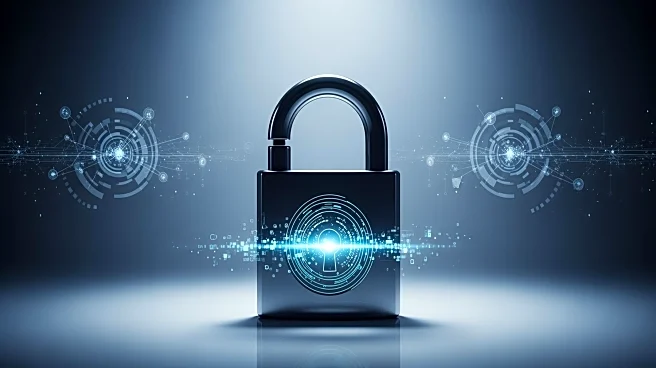What's Happening?
Japanese media company Nikkei has reported a security breach involving its Slack accounts, potentially compromising sensitive information from more than 17,000 users. The breach was traced back to an employee's personal computer, which was infected with
a virus, leading to the leakage of Slack authentication credentials. This unauthorized access resulted in the exposure of names, email addresses, and chat histories of individuals registered on Slack. Nikkei identified the incident in September and has since implemented countermeasures, including password changes. The company has voluntarily reported the breach to Japan's Personal Information Protection Commission, emphasizing that no information related to sources or reporting activities was leaked.
Why It's Important?
The breach highlights significant vulnerabilities in corporate data security, particularly when non-corporate devices are used to access sensitive information. This incident underscores the need for robust security protocols and regular monitoring to prevent unauthorized access. Organizations using communication platforms like Slack must enforce strict policies for session management and token refreshment to mitigate risks. The exposure of personal data can lead to privacy violations and potential misuse, affecting both individuals and corporate entities. This event serves as a critical reminder for companies to reassess their cybersecurity measures and ensure comprehensive protection against similar threats.
What's Next?
In response to the breach, Nikkei has taken steps to enhance its security measures, including changing passwords and reporting the incident to relevant authorities. Organizations using Slack or similar platforms are advised to implement policies for revoking active sessions and routinely refreshing tokens for affected users. This proactive approach can help prevent future breaches and protect sensitive data. Additionally, companies may need to invest in advanced cybersecurity solutions to detect and respond to threats more effectively. Stakeholders, including cybersecurity experts and corporate leaders, are likely to push for stricter regulations and improved security standards in the industry.
Beyond the Headlines
The breach raises ethical concerns about data privacy and the responsibility of companies to protect user information. It also highlights the cultural shift towards remote work and the increased reliance on digital communication tools, which can introduce new vulnerabilities. As companies navigate these challenges, there may be a growing demand for transparency and accountability in handling data breaches. Long-term, this incident could influence corporate policies and drive innovation in cybersecurity technologies to address evolving threats.















